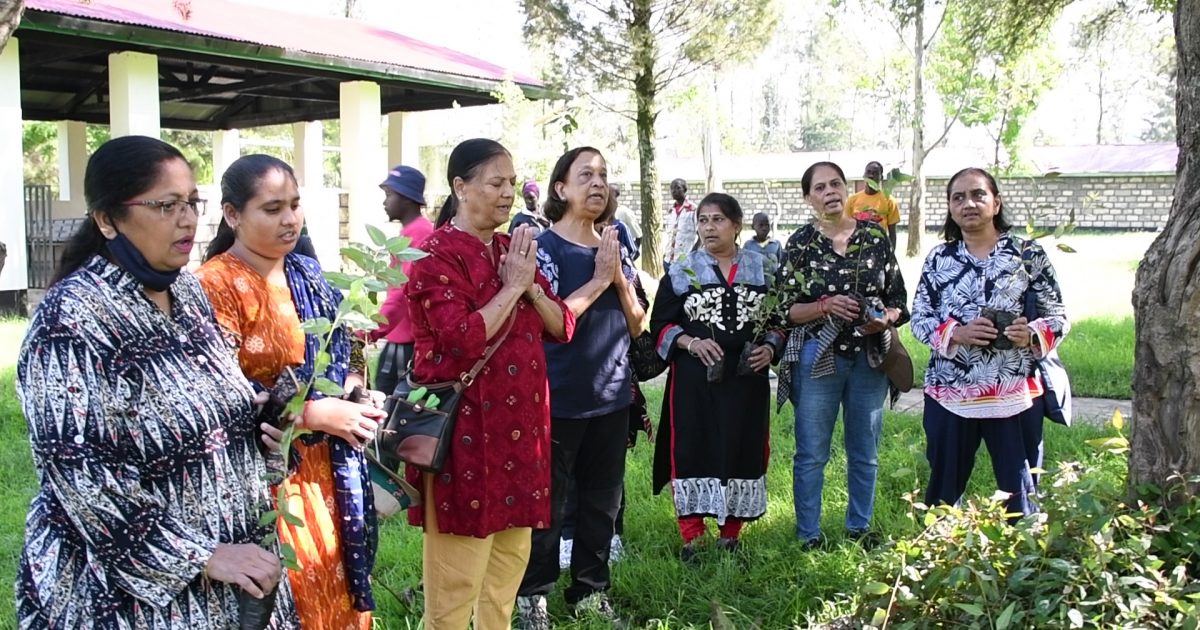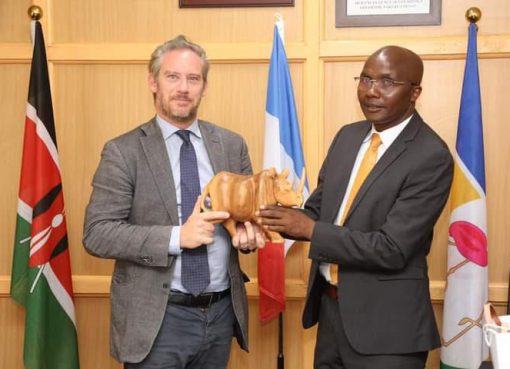The Visha Oshwal community has urged Kenyans to restore the ecosystem and mitigate climate change effects by planting trees.
The community has declared its commitment to support President William Ruto’s Special Presidential Forestry and Rangeland Acceleration Programme, which is tasked with ensuring 15 billion trees are planted in 10 years.
The head of Visha Oshwal Women’s League Ms. Sangita Shah decried increased cases of prolonged drought and human-wildlife conflicts in many parts of the country, which she linked to the climate change menace.
While noting that the President has set a new target of 30 percent tree cover by 2032, from the current 12.13 percent, Ms. Shah sounded an alarm as she called on Kenyans to double their individual and collective efforts towards mitigating the adverse effects of climate change to avert calamities.
“Let us join hands to make sure that we work well and take our time and make what God has given us as an opportunity to improve the ecology. We cannot do it by just speaking about it. We can only do it by waking up and doing something about it,” she added.
Speaking when the women’s league planted 500 assorted seedlings in Nakuru Ms. Shah noted that the declaration by Dr Ruto was commendable adding that the Head of State’s projection was achievable bearing in mind that every Kenyan just needs to plant 300 trees to realize the target.
She observed, “In a past event we also planted 500 tree seedlings. If we do not reverse the current trend with diminishing biodiversity, we simply threaten our own existence. Today, one million animals and plant species face the threat of extinction and everyday species are lost, to never come back. It is both a sad and scary thought; but did you know that biodiversity is a prerequisite for human survival?”, she posed.
Ms. Shah added “Nature, as we know it, is dependent on a huge variety of life forms – different habitats, a big variety of species, and a great genetic variation within the species – for the earth’s ecosystem to function. If the diversity is threatened, the ecosystems that give us clean water, crops, and fertile soils would simply collapse,”
She singled out deforestation as one of the biggest threats by which biodiversity is threatened and observed that when forests are harvested to become arable land for a single crop or tree planting with a single tree species, many species disappear and with it goes vital functions, such as pollination and water purification.
Towards both increasing agricultural efficiency and preserving biodiversity, Ms. Shah advised farmers to embrace agroforestry, the method of planting trees and crops together in a farm.
In addition to the trees contributing to the binding of carbon in vegetation and soil, thus reducing climate change, she stated that they help farmers protect themselves against the effects of climate change.
“Trees provide shade that binds the soil and increases resistance to pests, droughts, and floods. They provide access to firewood and a variety of nutritious foods. Trees in the agricultural landscape can also increase the soil’s ability to capture and retain water in the soil and replenish groundwater.
Ms. Shah further indicated that agroforestry helps to preserve and that it can create important habitats for a wide variety of plant and animal species and pollinators like bees, which are a prerequisite for plants regeneration.
Kenya is among countries in the Horn of Africa badly hit by the effects of global warming, says the Food and Agriculture Organization.
The Visha Oshwal Community is actively involved in promoting climate smart agriculture, rainwater harvesting and restoration of rivers.
Ms Shah indicated that Visha Oshwal Women League’s has an obligation to protect the environment and restore degraded forests.
“Climate change is threatening our existence, that’s why we have decided to do something before it’s too late. The whole idea is to raise awareness for Kenyans to know about restoration and the need for each citizen to actually participate and engage in environmental restoration. The environment underpins all that we do including our livelihoods,” she remarked.
A World Bank report indicates that Kenya loses an average of 12,600 hectares per year of forest cover due to human settlement and illegal logging, with the country having lost five per cent of its forest cover between 1990 and 2005.
By Anne Mwale



